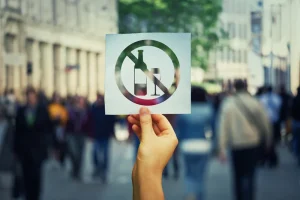
Future work may focus on quantitative measures of sleep quality affected by alcohol. Drinking to the point of a blackout has gained pop culture notoriety in recent years. Alcohol-induced blackouts can lead to impaired memory of events that transpired while intoxicated, and a drastically increased risk of injuries and other harms. They can occur in anyone who drinks alcohol, no matter their age or level of experience with drinking.
- Since alcohol-induced MBOs are endemic in some young adult populations, to what extent do the consequences of this extreme binge-drinking impart any damage to cognition or the brain?
- During a blackout, an individual is capable of participating in salient, emotionally-charged events but will have no recollection of what has occurred.
- The conversion table available in the Nepali version of the CIDI questionnaire was used to calculate standard units of drinks in units of ethanol.
- Between six and eight of every ten (or 60% to 80% of) Vietnam Veterans seeking PTSD treatment have alcohol use problems.
- Participants were then asked if the word displayed had been in lowercase letters (yes/no judgement, response counterbalanced between participants, no time limit).
- Second, the use of opioid blockers such as naltrexone may block the effects of alcohol and break the addictive cycle.
What are blackouts and brownouts?

Despite being allocated to distinct groups, women, hospital inpatients, and participants with refugee backgrounds (all women) were underrepresented in the sample. All participants had an AUD which is, in itself, a modulatory factor for neuroimmune status. We are unable to confirm the accuracy of recall of past adverse events and other forms of reporting bias as several of the variables were constructed from personally sensitive self-report data. Further, calculation of standard alcohol units is approximate as the possibility of a wide variation in the ethanol concentration of locally brewed beverages cannot be ruled out. Future adequately sampled studies should account for confounders of inflammatory mediators in blood, and the comparison group should include a healthy control as well as isolated disorders. Epigenetic changes relevant to hypothalamic pituitary adrenal axis response have been found to correlate with specific childhood abuse and its repetitiveness 66.
Get help from Veterans Crisis Line

You may drink because using alcohol distracts you from your problems for a short time. You should know, though, that drinking makes it harder to concentrate, be productive, and enjoy your life. Problems with alcohol are linked to a life that lacks order and feels out of control. This lifestyle leads to distance from others and more conflict within a family.
Current study
Your mind does not know how to react around certain sights, smells, sounds and other sensory factors that remind you of that event. You may not realize you are around a trigger; your brain just reacts to it. Post-traumaticstress disorder (PTSD)and alcohol use can frequently co-occur. PTSD andalcohol abusemay occur together due to the tendency of people diagnosed with PTSD to engage in self-destructive behavior and the desire to avoid thinking about the trauma. Due to the high level of intoxication needed to experience a blackout, decision-making and other psychological processes are very likely to be impaired during this period.

Alcohol is known to affect encoding 57 therefore some may consider a greater drop in performance for deeply encoded items, compared to shallow, following alcohol consumption to be surprising. It may be that deeply encoded items, said to have a stronger memory trace 58, would be more impervious to the effects of alcohol on free recall. In the free and serial recall tasks we assessed the percentage of accurately recalled words, and frequency of false alarms, with fixed effects of alcohol (before and after alcohol), and group (control and MBO). We also did this for the MBO group only, looking at the impact of MBOs, compared to before and after drinking alcohol conditions (see Fig 1). To be clear, when we discuss an after-MBO effect, or a blackout effect, we are referring to any statistical difference between sober (before-alcohol) and after-MBO conditions.

- They possess the expertise to guide you safely through the process of reducing your alcohol consumption while monitoring your well-being.
- In fact, many people who have blackouts do so after engaging in a behavior known as high-intensity drinking, which is defined as drinking at levels that are at least twice as high as the binge-drinking thresholds for women and men.
- In fact, anything a person can do when they are drunk, they can do while blacked out – they just simply won’t remember it the next day.
- These blackouts may include flashbacks to a previous time in the person’s life, or they may involve a dissociation from reality.
- Binge-drinking within adolescence and young adults is accepted as a global problem 1–4, yet the immediate consequences of binge-drinking, which can lead to an MBO, are rarely discussed.
- It should not be used in place of the advice of your physician or other qualified healthcare providers.
Because it is difficult to manage life with a drinking problem, it is harder to be a good parent. People pass out when they have had so much to drink that it is like going under anesthesia. Blackouts, on the other hand, ptsd blackouts have no objective signs of their presence and no alteration in the level of consciousness.

